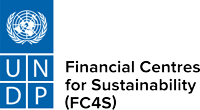Science-Based Tools for Financial Institutions
Given the urgent need to take effective climate action and the role of science in developing financial institutions’ transition pathways, FC4S developed a series of webinars to present available instruments that help address the challenges financial institutions face in developing their strategies and aligning their portfolios. This sequence of events aims to familiarize financial professionals with available tools and methodologies that help report, measure, and disclose aspects of sustainable finance strategies.
July 7 – UNEP FI Holistic Impact Analysis Methodology
In this session, you will learn about the UNEP FI Holistic Impact Analysis Methodology. This approach is a two-step process to understand and manage actual and potential positive and negative impacts across the spectrum of environmental, social, and economic issues. It ensures that interconnections between sustainability topics can be both managed and leveraged. This methodology has been operationalized in the form of a suite of Tools for Holistic Impact Analysis for use by financial intuitions and their clients.
Panelists:
Careen Abb
SDGs & Impact, Programme Lead, UNEP Finance Initiative
Careen leads UNEP FI’s SDGs & Impact work stream, a think-and-do space within UNEP FI focused on closing the $2.5 trillion SDG financing gap.
Careen managed the process leading to the Principles for Positive Impact (PI Principles), released in January 2017 and marking the beginning of the Impact & SDGs work stream at UNEP FI. In 2018 she co-authored Rethinking Impact to Finance the SDGs, which spells out UNEP FI’s unique theory of impact, positing that impact can and will become a core business driver, and advocating for holistic impact analysis and management as the gateway to an impact-based economy.
She has since managed the development of a unique holistic impact management methodology, leading to the release of suite of tools, the Portfolio Impact Analysis Tools, a Corporate and a Real Estate Impact Analysis Tool. The Bank Portfolio Tool is built to support banks in achieving compliance with UNEP FI’s 2019 Principles for Responsible Banking, which further promote an impact-focused approach. She is responsible for managing UNEP FI’s involvement in the Impact Management Platform, of which it is currently the Co-Chair.
Costanza Ghera
SDGs & Impact, Content Manager, UNEP Finance Initiative
Costanza works as a content manager in the SDGs & Impact team at UNEP FI. She focuses on the development of the UNEP FI Holistic Impact Analysis Tools which enable banks, investors and their corporate clients and investee companies to implement a holistic approach to impact analysis and management. Additionally, she closely supports UNEP FI members with the implementation of their impact analysis through workshops, group sessions and bilateral discussions. Prior to joining UNEP FI, she worked at the World Business Council for Sustainable Development as a reporting analyst, at the Italian Ministry of Foreign Affairs and International Cooperation in the press and communications office and in a couple of environmentally and socially focused NGOs. Her academic background is in Political Science and International Relations, with a specialization in social science and sustainability.













































